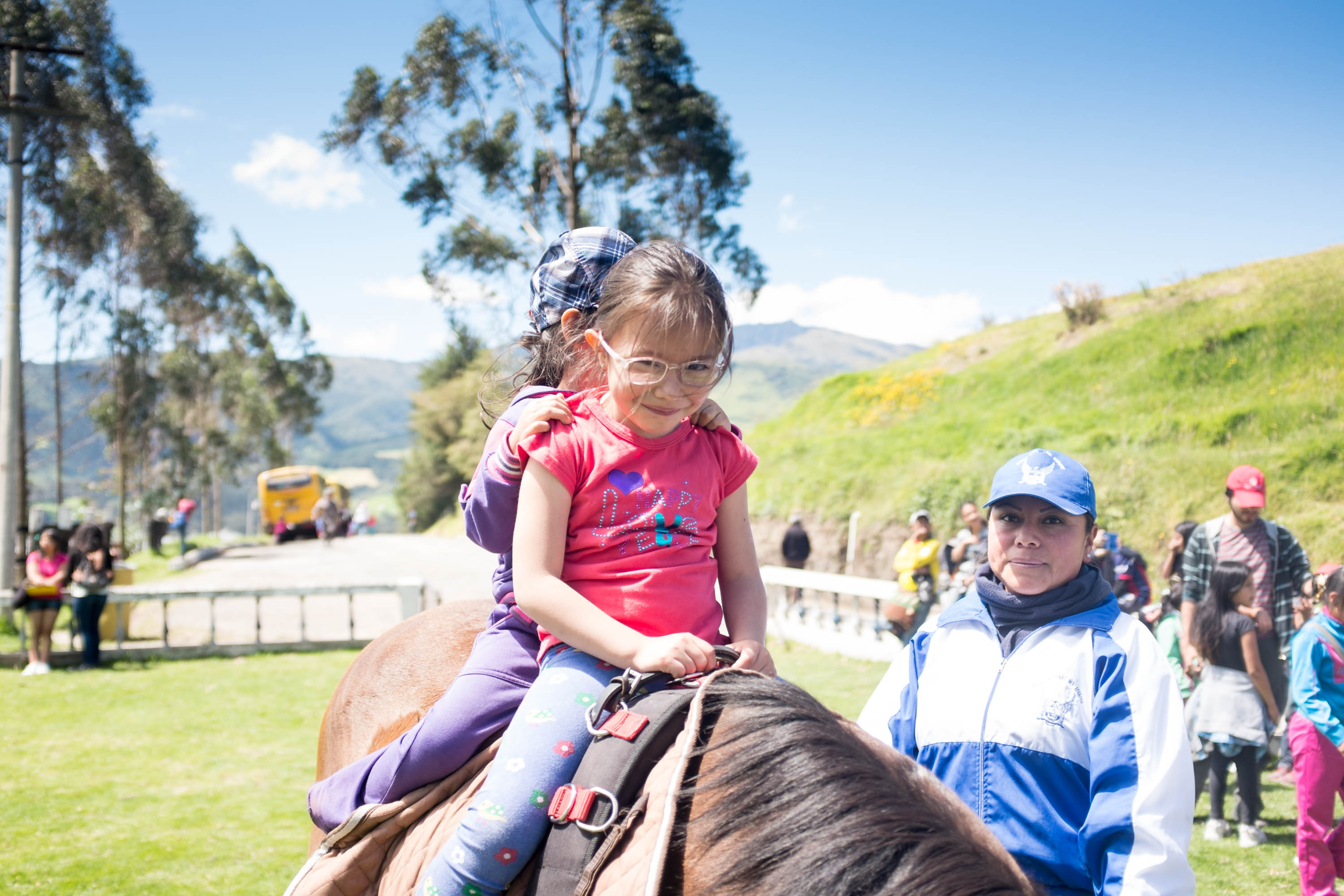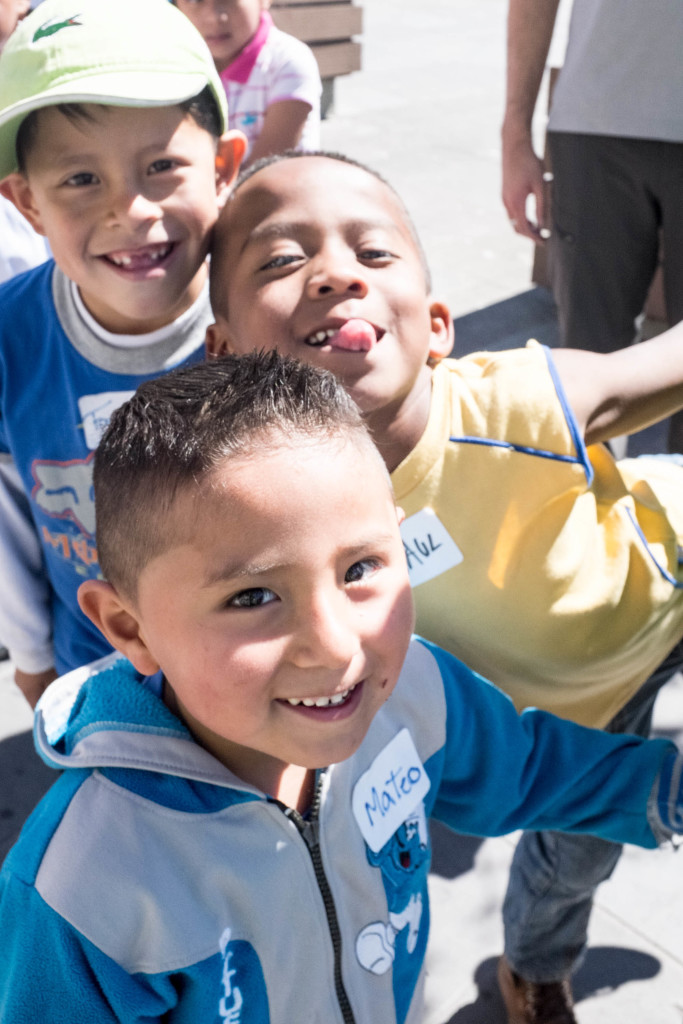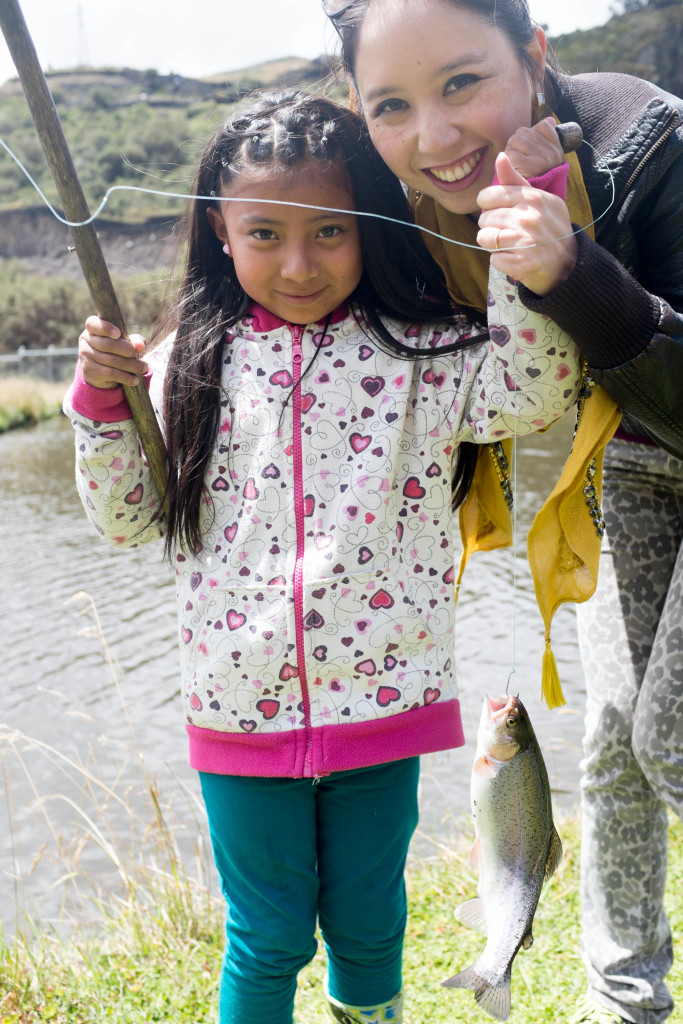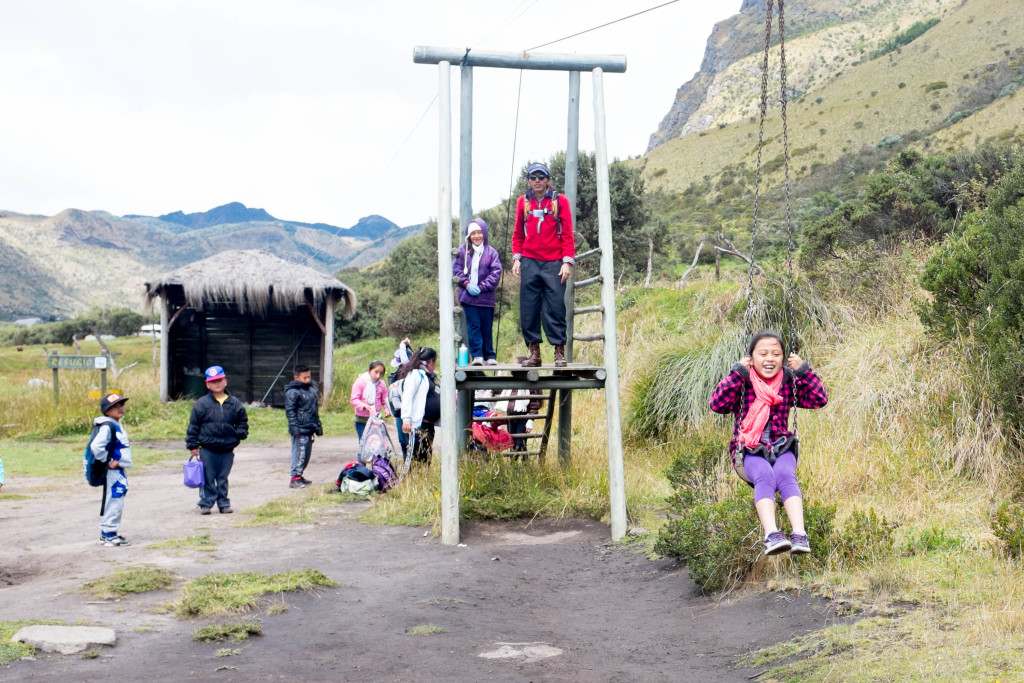We’re finishing up our time in Ecuador today. We’ve spent the past 3 weeks at Casa Victoria, volunteering with children in a low-income neighborhood in Quito.
I can’t wait to write more about our travels in Ecuador, but first I want to share about the kids we’ve worked with. They need encouragement, love, and a firm hand just like all other kids, but there are a few values they hold that I really appreciate.
In fact, I’ve noticed these trends among underprivileged children around the world. As a volunteer, I’ve spent time teaching children in Asia and Latin America– children who were not necessarily in crisis, but certainly came from low-income families. I’ve learned that their owning less, though often seen as a disadvantage, can yield some beautiful lessons.
Lessons from Kids Who Live With Less
1) Generosity is not dependent on what you own.
Every time I’ve worked with kids overseas, they’ve shared little gifts with me. Sometimes a few pieces of fruit, or a handmade bracelet. Their generosity inspires me– giving out of abundance is one thing, but giving out of need is even more admirable.
2) You don’t need toys in order to have fun.
It’s amazing how creative the kids in these neighborhoods were. We Americans tell “horror” stories about how the Great Depression had children playing with oatmeal boxes and cardboard boxes. Rarely do we realize that this is still reality for many children. And while perhaps we’d like them to enjoy some more sophisticated toys, they’re not unhappy with what they’ve got.
3) School and teachers are awesome.
I’m about to say something controversial, so bear with me. Having worked as a tutor (both volunteer and paid) for years in the US, I feel that we educators often find ourselves begging kids to go to school. We beg them to do their homework, to work hard, and to graduate. Children who live with less, usually in other countries, seem to have a completely different attitude. They appreciate their teachers and even their homework. They recognize its value.
4) You help family members in need.
This is also a cultural thing, I believe. In less individualistic societies, the wellbeing of the family as a whole takes more priority. What this means for many kids is that they’re constantly thinking of their siblings. They will buy two pieces of candy instead of one, so that their little sister can have one too. Kids willingly work at their parents’ shops (much like they did a hundred years ago in the US) without complaint. It’s part of what it means to be family.
5) Food is not to be thrown away.
In the US, we collectively throw away a lot of food. In fact, the amount of food we lose or throw away in the US amounts to approximately $1 trillion (source). Just think of the last time a child didn’t finish what was on her plate and scraped it into the trash can. I see this happening much less among children who live with less. They finish their food, period. They rarely complain. They rarely ask for another option.
Less doesn’t have to be the cure
I’m an advocate for simple living, but not necessarily for experiments in suffering. Instead, we should simply realize that many of us live with plenty. Perhaps we could want a little less and give a little more. Perhaps we can practice creativity with our resources instead of expecting money to solve our problems.
I’m indebted to the opportunities I’ve had to live and spend time with children who grew up with much less than I did. I’m grateful for the chance to share myself with them– to allow our worlds to collide so that we both leave a bit changed.
[Tweet “5 secrets from children who live with less. via @daisylinshih #travel #minimalism”]





Aw Kiki! Thank you for your kind and compassionate words– it means a lot to me! I’m sure your daughter will grow up very self-aware and hopefully she’ll become as warm-hearted as you!
I knew from the moment I saw the title this post was going to bring tears to my eyes. I have such a soft spot for child. Always have. Becoming a mom has only escalated that. When I think of all I have done for my daughter, all she has, I get really emotional. I can’t help but think about the hundreds of thousands who don’t. I can only teach my daughter how very blessed she is, and pray God has his hand on their shoulder giving them hope. One day, I’d Joshua and I would love to adopt or foster, to give someone another chance.
It’s sad to me that some of these kids that have so little can still find reasons to be thankful, still have a thirst for knowledge. It’s beautiful. Thank you for inspiring me today. <3
http://www.accordingtokiki.net
So glad this resonated with you Brittany! I think your point about opening up our homes is really poignant– we’re so obsessed with privacy and “me time” here! Those values have their place, but I’m definitely inspired to share more too.
Yes, I have seen this at play so many times! I remember being blown away by the generosity and the family-first mentality of people/children who live with less. They understand the value of taking care of others and showing hospitality with what they do have. It’s amazing how the culture in America makes me feel inclined to stinginess, but remembering these lessons helps me break out of that mentality and open up my home and share my space, time, and food to help care for others. Thanks for this reminder!
Thank you Heather! I love the idea of finding toys that spur the imagination! I remember having less interest in toys and more in just playing “pretend,” and I’m hoping my kids will be the same way!
I totally agree! I’ve seen kids in Rwanda and Ecuador play with the simplest of toys, but they’re joyfully playing with these things for hours each day. Meanwhile, kids I know in the US from upper-middle-class families get SO MANY toys and gadgets and by the end of the night they’re bored with them all, some still unwrapped. Someday when I have kids I want to just get things like blocks and dolls – toys that can get the imagination going rather than just stimulate the senses – and hope that they’ll learn what the kids with less already know.
Thank you Meryl! Your experiences abroad must have been amazing– those are all countries I want to visit one day. And I hope to do the same as you– encourage my future kids to play with less, and be creative!
Thank you Emily! Yes yes!
Thank you Brittany! I’m so glad this resonated with you and it’s so so cool that you’ve been to the Philippines! The kids who grow up with less excess definitely cherish gifts more, and oddly they give gifts more too!
Thank you Christina! I love that you’ve discovered this so early– it’s a joy to see kids be creative with what they already have!
Thanks friend! I tend to agree with you– education is important but it’s impossible to *force* someone to learn!
I love this post. I spent a long time volunteering in Mongolia, Nepal and India and had similar discoveries. The way children could imagine whole worlds without needing toys has always stayed with me, and I’ve encouraged my kids to play with less too.
I love this post. We surely could do better to be appreciative of what we have and do a better job of using our resources more responsibly.
I love this post Daisy! So well written and such good points! My mother is from the Philippines, and when we go back to visit I notice the exact same things that you pointed out. Children are always helping and sharing with their siblings, they give us the sweetest handmade gifts, and they LOVE school. We ship a huge box of school supplies there every year and you’ll be so surprised how happy kids are when they get just one notebook or a pack of crayons. They cherish it so much. Thanks for sharing this!
What a beautiful post Daisy! I’ve discovered that even my 1-year-old prefers non-toys over her toys. It’s totally possible to have fun without toys present! And in many cases, kids actually prefer it! They don’t need to have a million toys to have a fun and magical childhood.
A very beautiful and well-needed post in our affluent world. And as a teacher, I’m not at all shocked by your entry about “begging”. In fact, I think that a greater emphasis should be put on manual jobs and children should have the freedom to leave school at sixteen to start meaningful employment instead of having their parents trying and failing to make them go to school. School should be enjoyed, not suffered ! xx